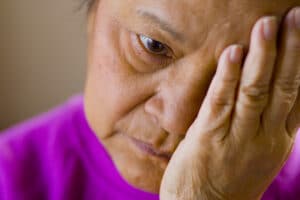What Is Elder Abuse?
California has enacted a law that explicitly punishes anyone who has committed elder abuse. This statute adds an extra layer of protection for a vulnerable population and backs up that protection with severe punishments. However, there are very particular elements a prosecutor must prove to obtain a conviction for elder abuse.
Elder Abuse Only Applies To Victims 65 and Older
To commit elder abuse, you must know or at least should have known that the victim was 65 years old or older. In addition, as a result of your conduct, the victim must suffer:
- Physical abuse;
- Emotional or mental abuse;
- Neglect; or,
- Financial exploitation.
If you cause any of the above harms to someone you know is 65 or older, you may have committed elder abuse. In California, elder abuse is a “wobbler,” a crime that can be a misdemeanor or felony based on the circumstances.
Misdemeanor Elder Abuse Results in Unjustifiable Pain or Suffering
As a misdemeanor, elder abuse can lead to a year in county jail, fines up to $6,000, and restitution to the victim. Along with knowing the victim was older than 65, to be convicted of misdemeanor elder abuse, a prosecutor must prove that you:
- Caused someone unjustified physical pain or mental suffering;
- Acted willfully or with criminal negligence; and,
- Your actions could have endangered the victim’s life or health.
Proving that you acted willfully or criminally negligently can be complicated for a prosecutor. Your actions leading to abuse must have been either:
- On purpose; or,
- Unreasonably indifferent to human life.
Even if your actions were purposeful and unreasonable, and they endangered the victim’s life, a prosecutor must also prove you caused the victim unjustified pain or suffering. Any pain or suffering that is unnecessary or excessive in that specific situation is unjustified under California law. This can range from the physical pain caused by a slap — to the mental anguish caused by forced isolation — to the suffering caused by exploitatively having an elder change their will.
Felony Elder Abuse Requires Great Bodily Harm
While felony elder abuse is similar to the misdemeanor charge, the felony adds an additional requirement a prosecutor must prove. If all the facts are the same, but your conduct also may have caused the victim great bodily injury or death, you will be charged with felony elder abuse. A pattern of behavior can lead to great bodily injury, such as prolonged starvation or the refusal to provide adequate care for an immobilized victim. Great bodily harm can also occur from a single incident, like pushing a victim down or striking them.
A conviction for felony elder abuse can lead to up to four years in state prison. There are also increased fines and felony probation for any felony elder abuse conviction.
Large amounts of elder abuse cases turn on how your actions are viewed. For example, was it an unfortunate oversight to not check on your live-in grandmother, or was it a willful punishment? A skilled criminal defense attorney can help you explain if your actions were simply a horrible mistake and not a crime.
If you are being investigated for elder abuse in Santa Monica, California, the Chambers Law Firm can help fight any charges. Start the fight by reaching out to us at 714-760-4088 or dchambers@clfca.com to request a strategy session.





